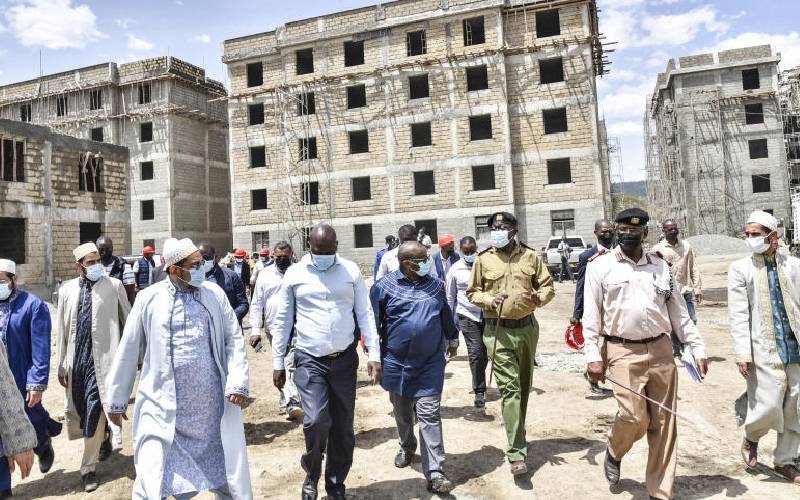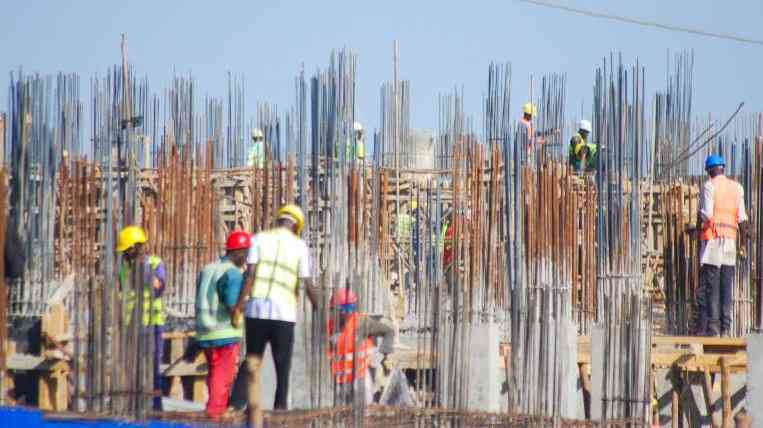Government officials at one of the model houses at the 605 affordable housing units projects under construction in Bondeni, Nakuru City on February 6, 2022. [Kennedy Gachuhi, Standard].
×
The Standard e-Paper
Kenya’s Boldest Voice

Government officials at one of the model houses at the 605 affordable housing units projects under construction in Bondeni, Nakuru City on February 6, 2022. [Kennedy Gachuhi, Standard].
When breaking ground for a Sh3.5-billion housing project in Kisumu last week, African Union High Representative for Infrastructure Development in Africa Raila Odinga remarked on how expensive owning a home is in Kenya.







